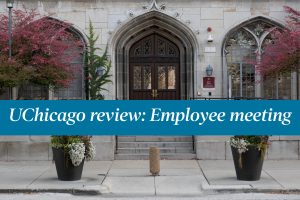Undergraduate debt affects students long-term
May 14, 2019
Saving for retirement. Buying a car. Having children.
As high school students contemplate taking out loans to pay for the ever-increasing cost of attending college, they may not consider these potential major facets of their future lives, but life milestones can be directly impacted by the debt students incur throughout their higher education.
High school students think about prestige or the ideal of college life. Few consider cost a priority, and many take out loans. Yet, the decision to take out loans is one of immense importance, as it has significant long-term impacts.
According to college counselor Patty Kovacs, most statistics regarding student loan debt are of aggregate debt. This means that the majority of those dollars are from graduate school loans.
Students still often take out hefty loans for their undergraduate education, but colleges try to keep them from taking on too much debt.
“For undergraduate student loan debt, most colleges are going to cap that,” she said.
While colleges may stop students from taking out colossal loans, they put no such restrictions on parents. Any parent with a good credit record, regardless of financial profile, could qualify for a government loan to aid in paying their child’s tuition. The question then, is whether or not families are willing to go into debt to pay for their child’s college education.
Students must consider how much debt responsibility they will take and how much will fall to their parents, and in addition to that, families should consider long-term financial aid plans, according to Ms. Kovacs.
“You might say, ‘I want to go to college, and I want to be a doctor, and I want to open a practice,’” she said. “How long do families want to be contributing to the overall educational costs? Does it end totally at the bachelor’s degree, or can we say, ‘We’ve put this money aside and we’ll extend it if you look at financial options that are different.’”
While students should be mindful of the long-term impact of their student debt, according to Ms. Kovacs, undergraduate student loans shouldn’t affect a student’s ability to attend graduate school as students will not have to begin payments until after graduate school.
“I don’t think it affects the ability to go to graduate school,” she said. “It kicks that undergraduate loan repayment off until you’re finished with that grad school. And then it gets folded into the aggregate.”
Undergraduate debt may not affect a student’s ability to attend graduate school, but it does affect a student’s ability to take out loans for other major components of adult life.
“In many ways that’s like buying a car. If you haven’t budgeted for that, then it can come as a shock,” Ms. Kovacs said. “It does delay in some cases, students buying a home, getting married, those kinds of things.”
From Oct. 9 to Oct. 24, 2018, 7,095 adults with student loan debt from all 50 U.S. states were surveyed by Student Debt Crisis, a non-profit organization dedicated to student debt reform. More than half — 56% of those surveyed — said their student debt prevented them from buying a home, and 19% delayed getting married.
While some may look toward loan forgiveness to tackle debt, qualifications are strict. According to the Department of Education, to qualify for loan forgiveness, one must work at a non-profit organization for 10 years, work for the federal, state or local government, and make 120 monthly payments. In 2017, 28,000 people applied for loan forgiveness, and only 96 were approved according to the New York Times.
As students consider financial aid, it is essential that they consider the impact and understand what their future will look like financially.
Ms. Kovacs said, “I think one of the best things to do is for parents and students to have an honest and open conversation early in high school, like sophomore year — what we’re really talking about in terms of college affordability.”




























































